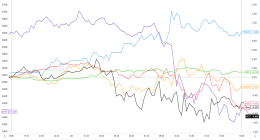
BERLIN—By most accounts, the Syrian conflict has been the most documented war in history.
But that mammoth trove of evidence—millions of videos, photos, social-media posts and satellite imagery—doesn’t easily translate into accountability for crimes committed during the war.
So as the United Nations, European authorities and human-rights groups build war-crimes cases, they have turned to a novel tool: artificial intelligence.
With the regime of President Bashar al-Assad emerging largely victorious from nearly a decade of conflict, efforts to bring about some measure of accountability are gaining speed, largely in European courts.
Since the beginning of Syria’s conflict, activists on the ground risked their lives to document human-rights violations, from torture and attacks on protesters to indiscriminate rocket strikes and barrel bombs.







